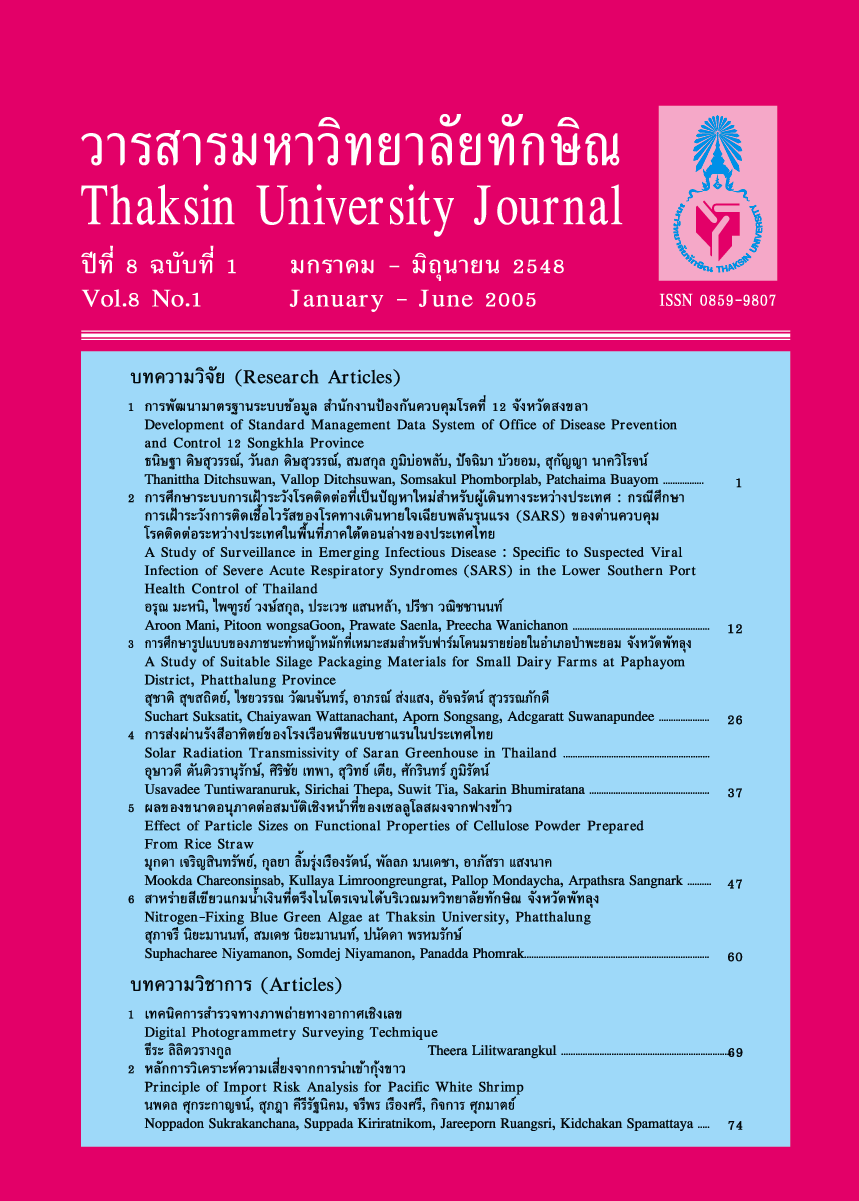การพัฒนามาตราฐานระบบข้อมูล สำนักงานป้องกันควบคุมโรคที่ 12 จังหวัดสงขลา
Main Article Content
Abstract
This study is a research and development approach aiming to develop database of the Office of Disease Prevention and Control 12 Songkhla Province, by adoping Thailand International Public Sector Standard Management System and Outcomes (P.S.O., Standard Data Management System; P.S.O. 1101). Five steps framing based on Deming cycle and Kielorierte Projektplanugn (ZOPP) techniques were implemented: creating vision and mission statement, developing Key Performance Indicators (KPIs), current status assessment, implementation, evaluation and act. The study consisted of 4 phases: database design planning, implementation (involving step 1 to 2), check or evaluation (involving step 3 to 4) and act (involving step 5). The result showed that Phase 1: The team finalized that the process of this project consisted of the five above steps, Phase 2: Vision statement was created three burden and six database were purposed. KPIs were created and developed according to nine criteria of P.S.O.1101. These were coverage, timeliness, validity, relevance, up to date, reliability, accessibility, auditing and participation. The weighting score was provided. Phase 3: Current status assessment before implement showed KPIs scores of coverage, timeliness, validity, relevance, up to date, reliability, accessibility, relevance, up to date, reliability, accessibility, assessment, and participation before implementing P.S.O.1101.Then made plan and projects for improvement. Phase 4: Act or standardization by auditing and advising, the scores was increased after implementing P.S.O.1101. The factors facilitating the success of implementing P.S.O. 1101 at DPC-12 were 1) the application of Deming quality cycle and ZOPP techniques 2) clear vision and management structure, 3) effective team working, 4) management support, 5) staff commitment, 6) shared values and 7) staff skills. The obstacles were the insufficient of instrument and staff.


